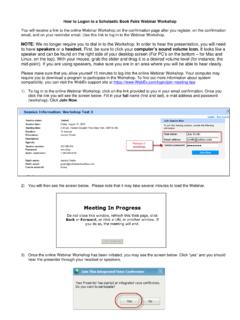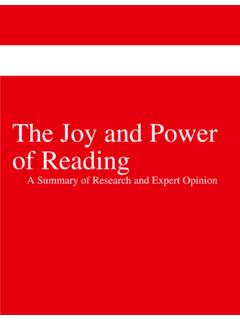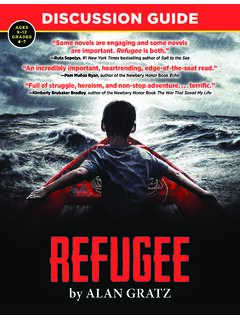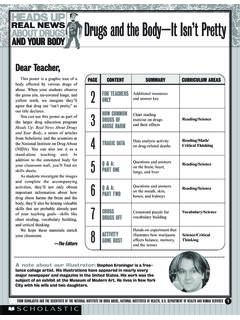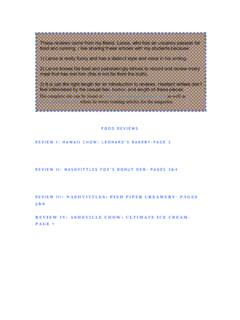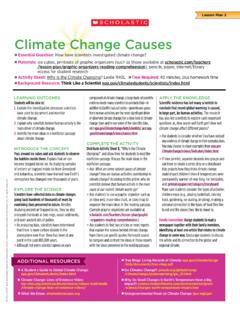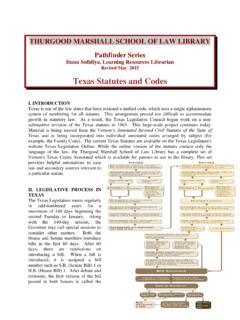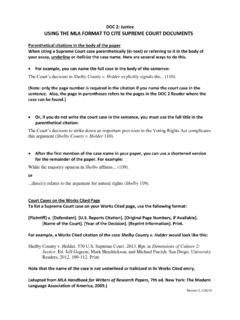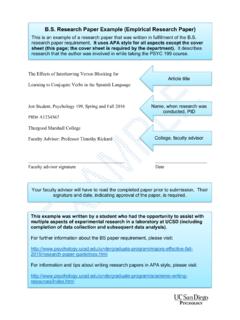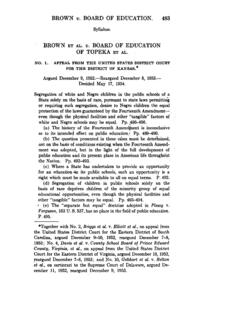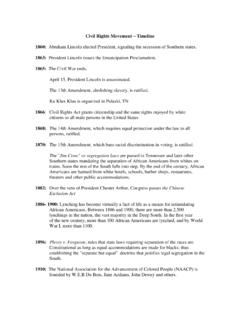Transcription of Explore the Seven Principles - Scholastic
1 Explore the Seven PrinciplesEach of the Seven days of Kwanzaa is dedicated to one of Seven Principles . In Swahili, these are knownas the nguzo day of Kwanzaa, introduce one principle to your students. Invite older childrento think of examples of that principle at work in their everyday lives (some examples are given below).With very young children, focus on a few Principles that are easy for them to understand (creativity,unity), and ask kids to draw pictures illustrating each UnityUmojaSelf-determinationKujichagulia Collective work and responsibility UjimaCooperative economicsUjamaaPurposeNiaCreativityKuumb aFaithImaniWhat the Principles Mean:Day 1/December 26 Unity:We join together as a family, as a community, and as a : You are kind to your brothers and sisters in order to help keep your family strong and 2/December 27 Self-determination:We speak up for ourselves and plan our own : You decide to become a teacher because you know you can do it.
2 You don't let others talk you out of 3/December 28 Collective work and responsibility:We work together to solve : After a neighbor's home burns down, your community chips in to provide lodging, clothes,and food for the 4/December 29 Cooperative economics:We support African-American stores and : You decide to buy your groceries at a corner store run by a neighbor, rather than go to a large supermarket 5/December 30 Purpose:We choose a goal and work toward it little by : You promise to be more helpful at home then, each day, you choose one job to do (setting the table, cleaning your room, listening the first time you are asked to do something).71 Celebrate the Winter Holidays Elaine Israel, Scholastic Teaching Resources7272 Day 6/December 31 Creativity:We use all of our own talents and appreciate thetalents of : You sing a song to your baby brother, or read thepoems of great African-American 7/January 1 Faith:We believe in our parents and community believe that African-Americans will win the struggle : You don't feel bad about yourself, even if someonetries to treat you differently because of your skin for KwanzaaGift-giving is a part of many winterholidays, and Kwanzaa is no gifts are usually handmade andhave special meaning for both the giverand receiver.
3 Here are some ideas formeaningful gifts your students can prepare, whether theyactually celebrate Kwanzaa at home or are simply learningabout the holiday as part of a theme Mini-posters with lists of Seven personal goals for thecoming year. If students are giving the lists to loved ones, the goals may be home-centered ( , I will respect my parents). If the students are not bringing the lists home, the goals may be school-centered ( , I will read every day).2. A window box or personally-decorated planter An original poem for a parent, friend, classmate, orneighbor. Help children come up with a list of words they can use, such as the Swahili names of Kwanzaasymbols and their English A note promising to do one chore a day for a week (or more!) at home or at A Unity A mkeka mat for everyone in their A family memory scrap and Role ModelsChildren can learn about the sevenprinciples by hearing about people who exemplified them.
4 Here is a highlyarbitrary list of historic figures. Make this a year-long project and invite children to continue addingcontemporary Martin Luther King, Jr., leader ofpeaceful protests for equal Parks, seamstress who decidedshe should sit where she wanted on public buses and set in motion a civil rights WORK & RESPONSIBILITYT hurgood Marshall, first Supreme Court ECONOMICSG eorge Washington Carver, inventorPURPOSEA. Philip Randolph, founder of the first black trade union. It won betterworking conditions for people whoworked on Anderson, singerDuke Ellington, composerJacob Lawrence, painterFAITHEach of the people above overcamegreat obstacles. As you help yourstudents learn more about them,discuss the difficulties they faced and how they overcame the Winter Holidays Elaine Israel, Scholastic Teaching Resources
